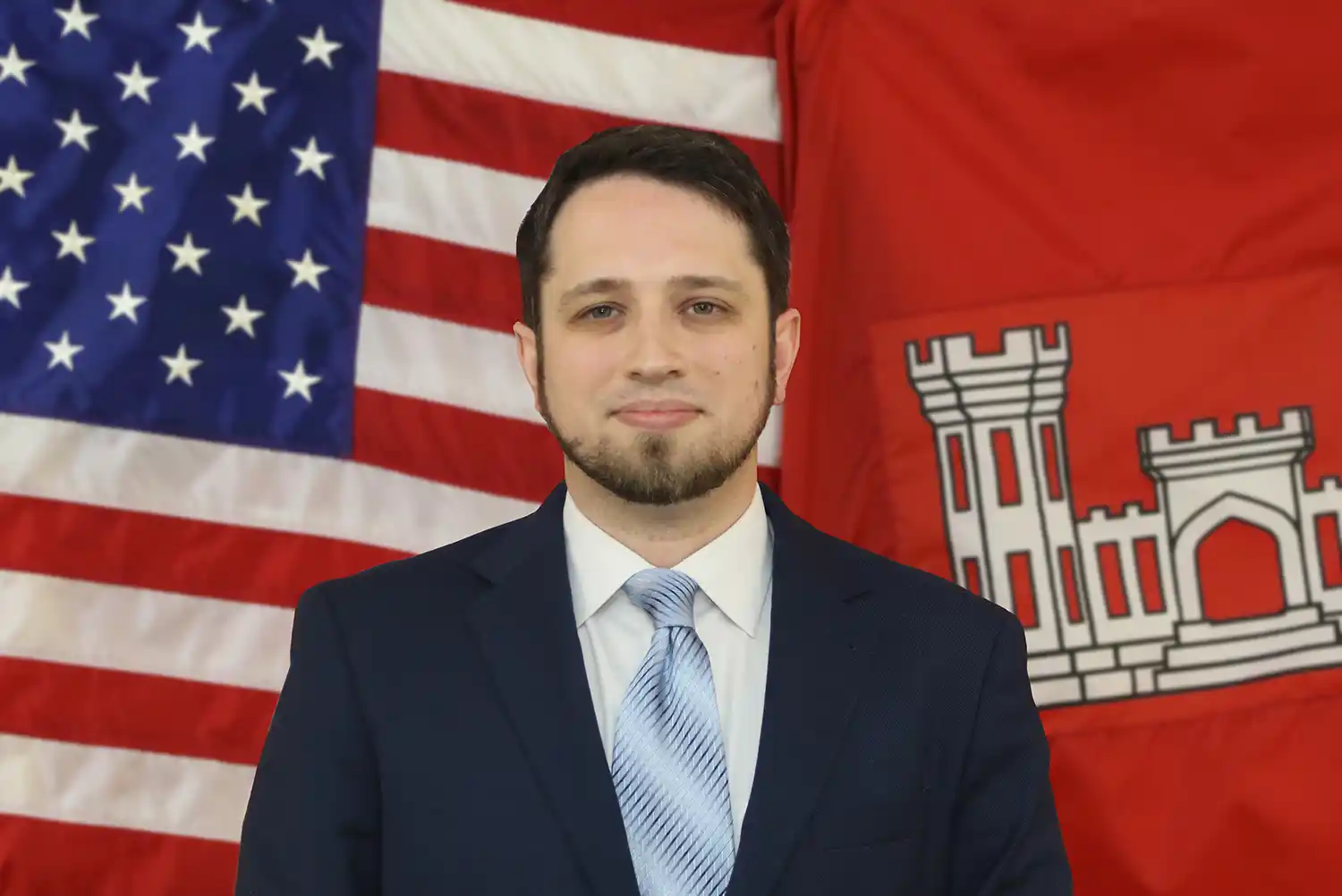USACE-ERDC alum assesses risk and strategy as Center for Engineering for Public Health and Human Factors leader
Meet Benjamin Trump
How do governments make judgements with insufficient information? That is the focus of Benjamin Trump’s research as a U.S. Army Corps of Engineers (USACE) Engineer Research and Development Center (ERDC) fellow. Specifically, he searched for ways to weigh benefits and risks when making decisions with incomplete data.

Benjamin Trump asks big questions as an ORISE fellow and now lead at the U.S. Army Corps of Engineers (USACE) Engineer Research and Development Center (ERDC) Center for Engineering for Public Health and Human Factors. (Photo Credit: Benjamin Trump)
Science, technology, engineering and math (STEM) have always been a passion for Trump. Having earned his doctoral degree in health management and policy from the University of Michigan, Trump sought avenues for moving from academia to real life utilization. Accepting an appointment with the Oak Ridge Institute for Science and Education (ORISE) as a USACE-ERDC postdoctoral fellow set him on the new professional path he desired.
“The ORISE program is renowned for its commitment to fostering scientific research and collaboration across various disciplines,” said Trump. “And the program’s emphasis on translating research into actionable outcomes aligns closely with my own aspirations as a scientist.”
Under the guidance of his mentor, Igor Linkov, at the USACE-ERDC Environmental Laboratory (EL), Trump gained extensive experience in investigative projects and collaborating across agencies. The Environmental Laboratory is one of the seven laboratories of USACE-ERDC, which is the Army Corps of Engineers' integrated research and development (R&D) organization. EL provides solutions to environmental challenges for the U.S. Army, the Department of Defense and the Nation through environmental science and engineering research and development.
His research focused on risk assessment and complex problem-solving around emerging technology. As technology advances and comes into public usage, it is imperative for the government to understand how the technology will be used and how it might help or harm all aspects of society. This includes a better understanding of how incorporating a promising new technology into government or business might affect public health or the environment.
Another aspect of his fellowship looked at complex governmental systems, such as infrastructure and socio-economic systems, which affect the day-to-day lives of everyday people. Part of risk assessment is puzzling out ways to bounce back from disruptions and preparing to combat worst case scenarios. The goal is to develop strategies and processes for swift mitigation of potential problems that could upend a complex system. Trump hopes his research will enhance knowledge of risk within these complex systems, making them more resilient to disruption.
Additionally, collaboration was a large part of his role as a fellow. “I actively engaged in extensive international collaborations. Notably, I worked closely with the International Risk Governance Center, an organization dedicated to advancing risk governance practices worldwide.”
After his fellowship ended, Trump became a full-time federal position as a research social scientist. He was able to continue research on the project he began as an ORISE fellow, overseeing two North Atlantic Treaty Organization Science for Peace and Security programs among other programs and educational workshops. During COVID, Trump also supported the Federal Emergency Management Agency (FEMA) as a strategic planner for six New England states.
More recently, Trump was appointed the lead at the USACE-ERDC-EL Center for Engineering for Public Health and Human Factors, as well as elected embassy science fellow for of the U.S. embassy in Ashgabat, Turkmenistan. He has earned several awards and honors, as well as being published in eight books and over one hundred articles and chapters. One such recent award is the Civilian Award for Humanitarian Service, and he was also rewarded as the USACE-ERDC Researcher of the Year in 2022.
Trump’s time as an ORISE intern helped prepare him for his later work as a government employee.
“ORISE gave me the opportunity and space to learn how to be an independent scientist – what works, what does not, and how to build an impactful project portfolio,” said Trump. “Transitioning to a fast-paced government research laboratory via ORISE enabled me to learn how to focus my research for application in the US and beyond.”
He is humbled seeing the great impact his research has around the world and expressed gratitude for every individual who has inspired him to become better. From ORISE fellow to FEMA strategic planner to a center lead at the USACE-ERDC, Trump has cemented himself as an invaluable part of the STEM risk-assessment global community.
The research participation program at USACE-ERDC is administered by the Oak Ridge Institute for Science and Education (ORISE) under an agreement between the U.S. Department of Defense (DoD) and the U.S. Department of Energy (DOE). ORISE is managed for DOE by ORAU.

